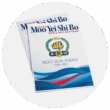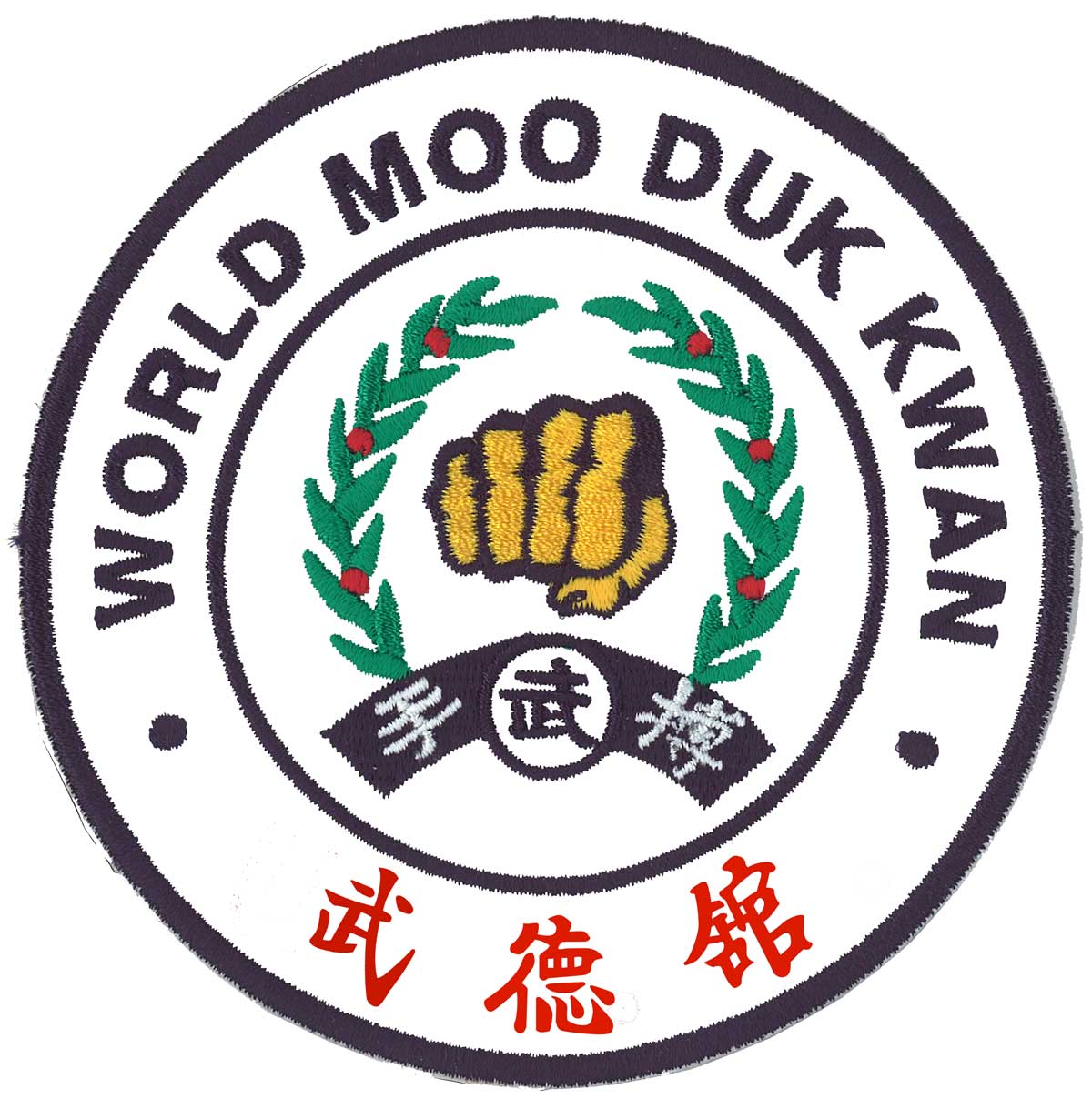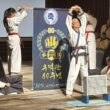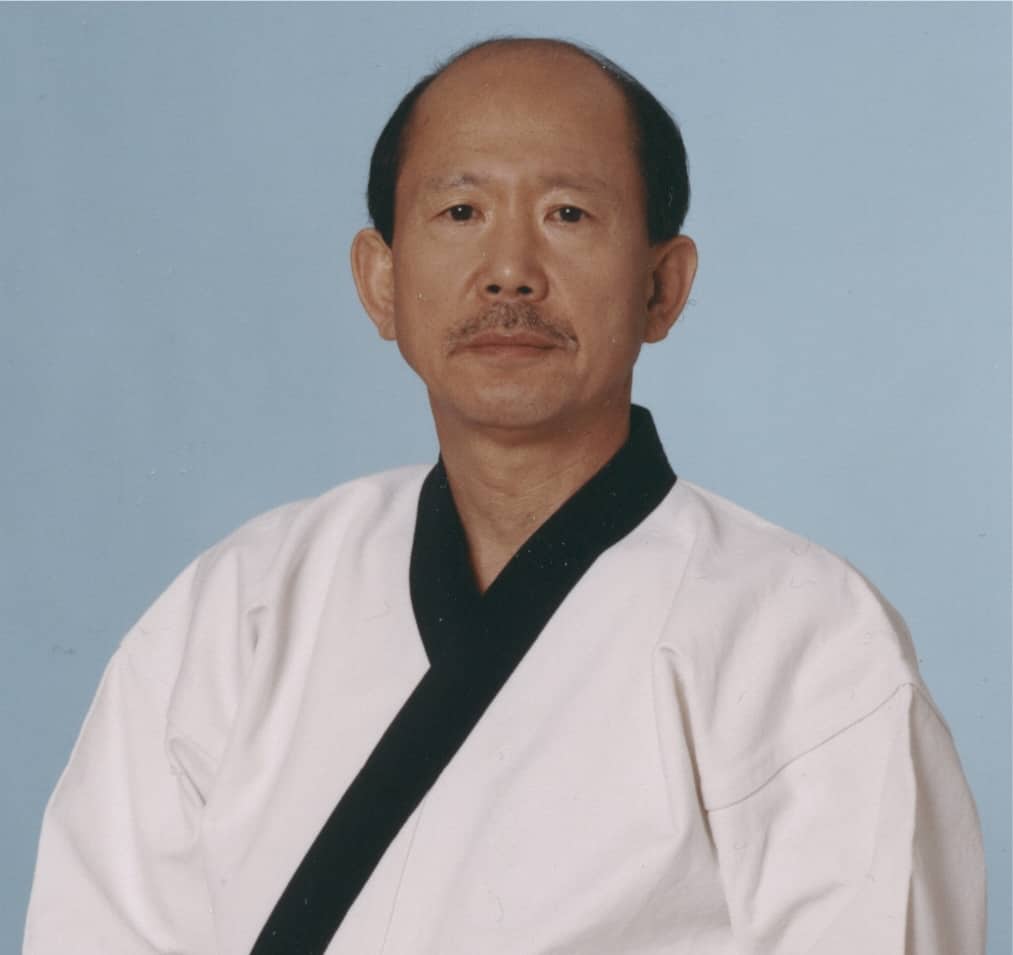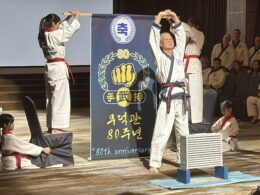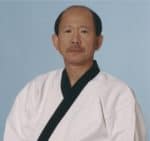
Moo Duk Kwan® President and Kwan Jang Nim, H.C. Hwang has put in place another cornerstone for the future of the Moo Duk Kwan®.
 He has appointed the first panel of members to the inaugural Sa Jei Ji Gahn Committee dedicated to the long-term preservation of harmonious relations among Soo Bahk Do® practitioners and Instructors.
He has appointed the first panel of members to the inaugural Sa Jei Ji Gahn Committee dedicated to the long-term preservation of harmonious relations among Soo Bahk Do® practitioners and Instructors.
Seeking to avoid conflict is an essential characteristic valued by those who embrace the cultural, philosophical and Moo Do attributes that Founder Hwang Kee infused into his martial art system and which make it unique.
Introducing the Sa Jei Ji Gahn Committee
12 October 2020, H.C. Hwang
Sa Jei Ji Gahn is defined as:
- Sa - referring to Sa Bom
- Jei - referring to the Jei Ja ranking system (student/disciple)
- Ji Gahn - referring to the relationship between Instructor and Student
 This Committee will consider and provide recommendations to the World Moo Duk Kwan (WMDK) for resolution of relationship issues as encountered on a national and international basis. The Committee will consider only those issues that have not been successfully resolved by the World Moo Duk Kwan’s extensive existing structure.
This Committee will consider and provide recommendations to the World Moo Duk Kwan (WMDK) for resolution of relationship issues as encountered on a national and international basis. The Committee will consider only those issues that have not been successfully resolved by the World Moo Duk Kwan’s extensive existing structure.
Relationships are based on mutual respect, trust and loyalty.
At times, this can become challenging, yet there are firm philosophical guidelines within the Moo Duk Kwan and demonstrated by our Founder.
Our first main Instructor is our Parent Instructor and should that relationship end for any reason, the member will be supported via a Guiding Instructor.
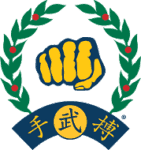 The Guiding Instructor will provide the necessary connection to the World Moo Duk Kwan. They will uphold Moo Do responsibilities, support the student along the Moo Do Path, provide MDK philosophy and regular classes, guide the implementation of the Mission 2000, give access to regular Shim Sa’s and seminars.
The Guiding Instructor will provide the necessary connection to the World Moo Duk Kwan. They will uphold Moo Do responsibilities, support the student along the Moo Do Path, provide MDK philosophy and regular classes, guide the implementation of the Mission 2000, give access to regular Shim Sa’s and seminars.
- Lawrence Seiberlich SBN, USA
- Kriton Glenn SBN, Australia
- Maria Del Pilar Gerarda Leguel Balcells – Guzman SBN, Mexico
- Diego Salinas SBN, Spain
- Ricardo Giorgi SBN, Argentina
Inaugural Sa Jei Ji Gahn Committee members are:
-
- Advisor: Lawrence Seiberlich SBN USA, Zone 2 Representative
- Chairperson: Kriton Glenn SBN Australia, Zone 1 Representative
- Vice Chair: Pilar Guzman SBN Mexico, Zone 4 Representative
- Member: Ricardo Giorgi SBN Argentina, Zone 3 Representative
- Facilitator: Diego Salinas SBN Spain
SA JEI JI GAHN COMMITTEE ROLE AND RESPONSIBILITES
By order of the Moo Duk Kwan® President, the Sa Jei Ji Gahn Committee (SJJGC) is established as a standing committee of the World Moo Duk Kwan (WMDK).
PURPOSE: To assist the President in the resolution of conflicts as they may arise between members, students and Instructors, and members and WMDK Officials of any level in any location.
OPERATIONAL PHILOSOPHY: The actions of the SJJGC will be guided by three Moo Do concepts noted as follows:
- We as an Organization, shall protect the Sa Jei Ji Gahn relationship which demonstrates mutual loyalty and respect between Instructor and student.
- The SJJG relationship applies both to the most intimate level (the Instructor and student), and to the student’s relationship with the Complete Art, because all members are students.
- All members are guided by the principal concept of the “role of the Parent Instructor (the first or main Instructor), and the Guiding Instructor (the current Instructor), who is supporting the member and connects the member with the WMDK.
PROCESS: The SJJGC will only consider Cases submitted to it by the President. The existing Local, Regional, National, and International structure of the WMDK has been formally established to act and resolve all conflicts. If that is not possible, or has been determined to be impossible, the President, at his discretion, may submit the Case to the SJJGC.
The SJJGC’s role will be to gather information relevant to the Case, develop findings therefrom, and establish potential processes for resolution of the Case. It will then submit recommendation options for its potential resolution to the President. At his discretion, he may direct the SJJGC to act to attempt to resolve the Case using the approved options.
SJJGC members shall treat as “Confidential” all information and proceedings, sharing them only with the President as necessary.
The SJJGC shall perform its work adhering to the following guidelines:
- Use of a consensus process guided by the Advisor.
- The Committee shall not be involved in the exchange of any monetary funds or other resources.
- The resolution process shall be focused on providing benefit to all members involved in the Case.
- No aspect of the “findings” shall be shared with individuals or entities not involved in the Case.
COMMITTEE MEMBERS:
- Four Senior members of the WMDK, one representing each operative Zone (1 – 4); A Senior Advisor; a Facilitator.
- All members shall be appointed by the President and serve at his pleasure.
- The Term of all members shall be at the discretion of the President.
- A Committee Chair shall be appointed by the President, and the Zone representative members shall choose a Committee Vice Chair.
- The President may, at his discretion, appoint Case Advisors, who are not Committee members, but have specific knowledge of the Case being considered. Their role is to assist the Committee only, and will serve for the duration of the Case, only.
- The President may, at his discretion, inactivate or terminate the Committee at any time.


